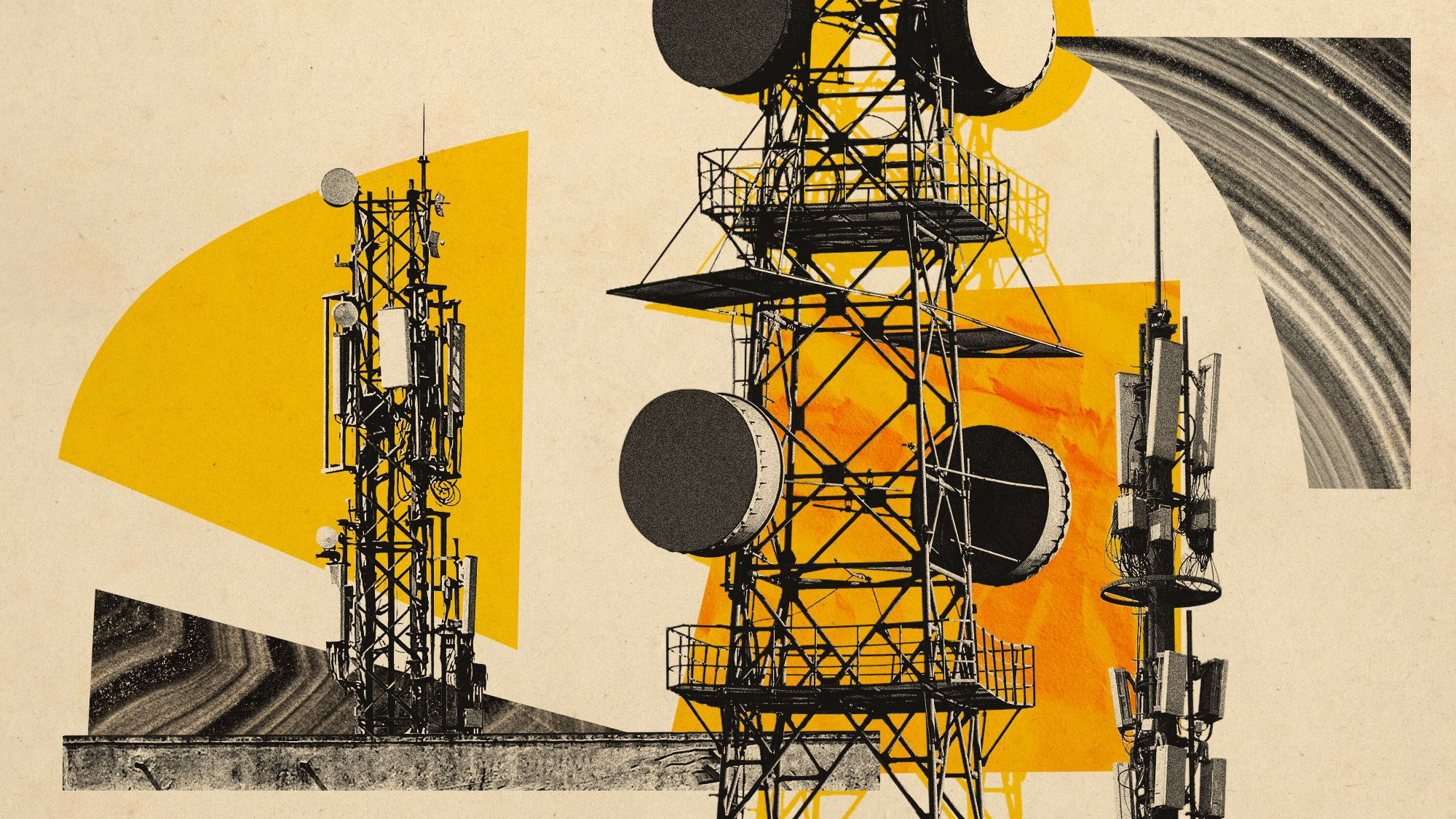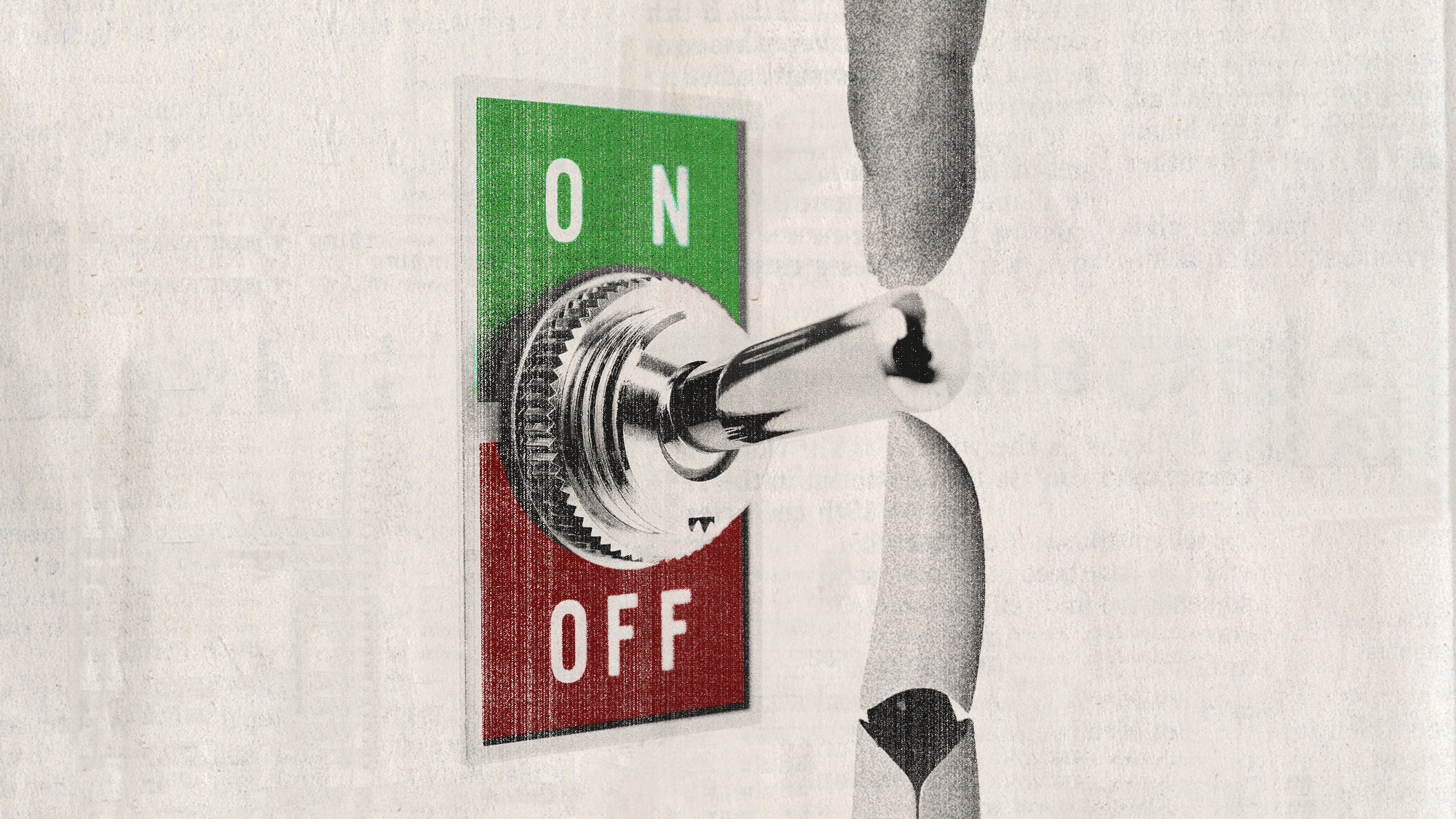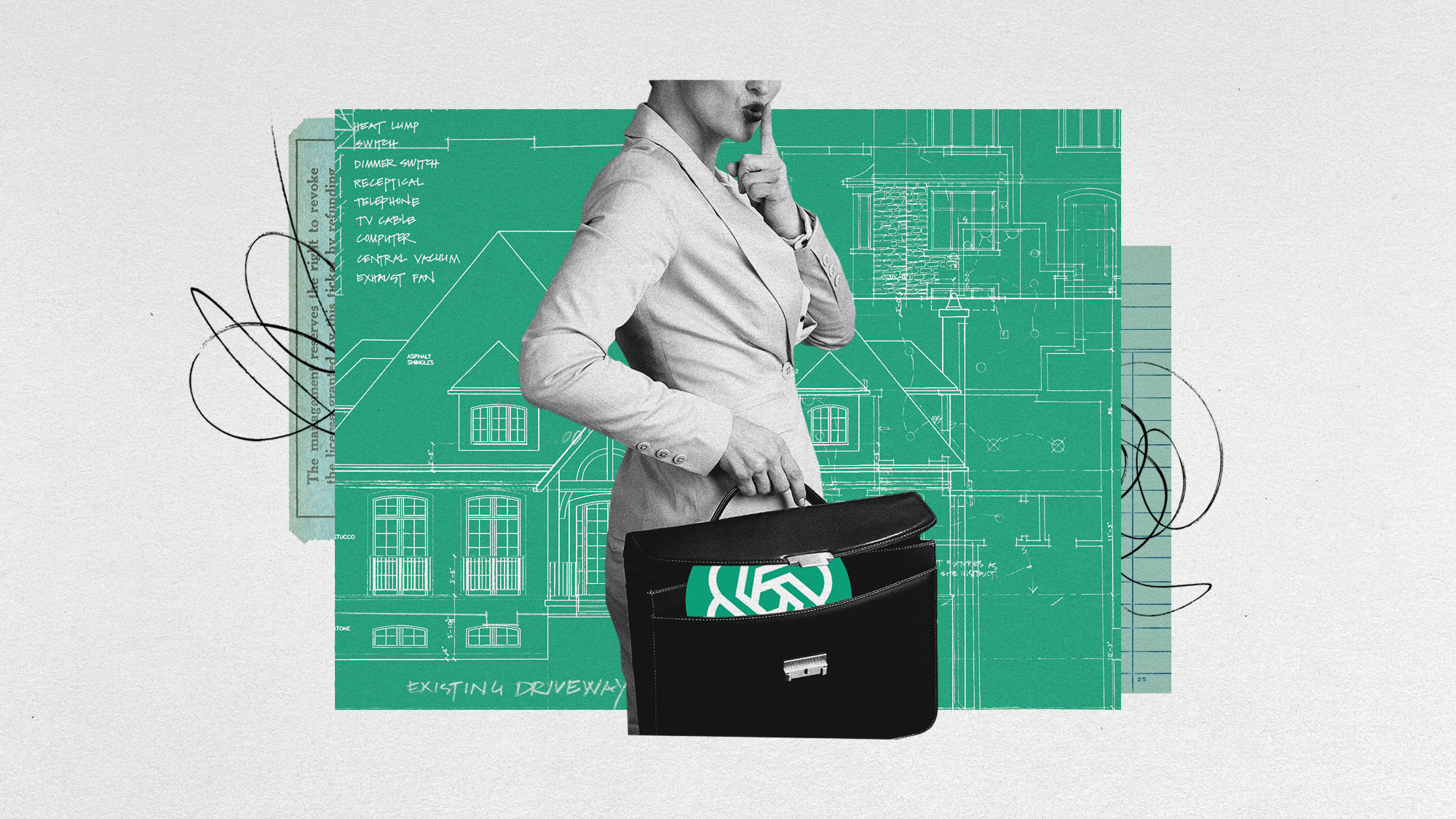Why the UK phone signal is so poor
Having trouble connecting? A lack of investment, planning rules and even your home could be to blame

A free daily email with the biggest news stories of the day – and the best features from TheWeek.com
You are now subscribed
Your newsletter sign-up was successful
Some of the UK's biggest cities are blighted by poor mobile phone network coverage.
Most mobile networks boast they cover 99% of the UK, but 17% of users have experienced problems with their connection, according to the latest Which? mobile network satisfaction survey. Complaints included network dropouts, recurrent outages and consistently bad phone signals.
While problems in rural communities are expected – the last UK Government even published a briefing paper on the subject – few people anticipate they will have to search for the magic four or five signal bars on their phone in a major urban area. However, many city-based users say they also have problems and, reported Yahoo! News, analytics company MedUX found that London had the worst 5G speed performance of all Europe's main cities, for both uploads and downloads.
The Week
Escape your echo chamber. Get the facts behind the news, plus analysis from multiple perspectives.

Sign up for The Week's Free Newsletters
From our morning news briefing to a weekly Good News Newsletter, get the best of The Week delivered directly to your inbox.
From our morning news briefing to a weekly Good News Newsletter, get the best of The Week delivered directly to your inbox.
'It's the infrastructure'
The problem, as Andy Aitken of mobile network provider Honest told the i news site, is a lack of investment. "We're not upgrading our telecom infrastructure to keep up with more devices and users", he said. In addition, the UK's planning system made it difficult to put up the giant telephone masts needed for better mobile coverage.
Even when planning is given, there are still problems, according to the London Evening Standard, which said the former Conservative government's ban on Chinese telecom manufacturer Huawei in 2020 put back the UK's roll-out of 5G phone masts by two to three years. This causes problems because most phones are "automatically programmed" to use 5G, even if there is a stronger 4G signal, said The Spectator's Kristina Murkett.
But the issue is not only troublesome phone calls. The lack of connectivity also hit the UK's productivity rate, "which has been a major cause of wage stagnation and chronic under-investment". Commuters in Japan can expect "seamless" 4G on their trains when travelling in tunnels between islands. In contrast, the Thameslink service between London and Brighton "doesn't even offer tables or plug sockets".
Warm house or better signal?
People working from home are also hit by the lack of connectivity, especially if they are in a new-build. "New buildings use more energy-efficient materials which effectively block the outdoor mobile signals from entering the building," Sam Jackman from mobile connectivity company Shared Access told the i news site.
A free daily email with the biggest news stories of the day – and the best features from TheWeek.com
Electric car-owners can't even escape to find a better signal. According to The Independent, two-thirds of Britain's most common public EV chargers could be hit by poor mobile coverage.
Citing a study by the RAC Foundation, the paper said 66% of Type-2 chargers outside London were located at a site where at least one network provider did not have usable 4G coverage. In the capital, the figure dropped slightly to 61.3%.
Drivers access the chargers through a mobile phone app, while the chargers themselves also need a connection to function.
According to the data, however, reports of a growing problem may simply be crossed wires due to the increased use of mobiles. "While the evidence suggests that connectivity is stable and only set to get better, it may be that consumers are becoming more aware of signal issues as phones become ever more essential and integrated into our everyday lives," Ernest Doku, a telecoms expert at Uswitch told the i news site.
Elizabeth Carr-Ellis is a freelance journalist and was previously the UK website's Production Editor. She has also held senior roles at The Scotsman, Sunday Herald and Hello!. As well as her writing, she is the creator and co-founder of the Pausitivity #KnowYourMenopause campaign and has appeared on national and international media discussing women's healthcare.
-
 ‘Poor time management isn’t just an inconvenience’
‘Poor time management isn’t just an inconvenience’Instant Opinion Opinion, comment and editorials of the day
-
 Bad Bunny’s Super Bowl: A win for unity
Bad Bunny’s Super Bowl: A win for unityFeature The global superstar's halftime show was a celebration for everyone to enjoy
-
 Book reviews: ‘Bonfire of the Murdochs’ and ‘The Typewriter and the Guillotine’
Book reviews: ‘Bonfire of the Murdochs’ and ‘The Typewriter and the Guillotine’Feature New insights into the Murdoch family’s turmoil and a renowned journalist’s time in pre-World War II Paris
-
 Data centers could soon be orbiting in space
Data centers could soon be orbiting in spaceUnder the radar The AI revolution is going cosmic
-
 AI griefbots create a computerized afterlife
AI griefbots create a computerized afterlifeUnder the Radar Some say the machines help people mourn; others are skeptical
-
 Inside a Black community’s fight against Elon Musk’s supercomputer
Inside a Black community’s fight against Elon Musk’s supercomputerUnder the radar Pollution from Colossal looms over a small Southern town, potentially exacerbating health concerns
-
 Spiralism is the new cult AI users are falling into
Spiralism is the new cult AI users are falling intoUnder the radar Technology is taking a turn
-
 Microsoft pursues digital intelligence ‘aligned to human values’ in shift from OpenAI
Microsoft pursues digital intelligence ‘aligned to human values’ in shift from OpenAIUNDER THE RADAR The iconic tech giant is jumping into the AI game with a bold new initiative designed to place people first in the search for digital intelligence
-
 AI models may be developing a ‘survival drive’
AI models may be developing a ‘survival drive’Under the radar Chatbots are refusing to shut down
-
 Saudi Arabia could become an AI focal point
Saudi Arabia could become an AI focal pointUnder the Radar A state-backed AI project hopes to rival China and the United States
-
 AI is making houses more expensive
AI is making houses more expensiveUnder the radar Homebuying is also made trickier by AI-generated internet listings